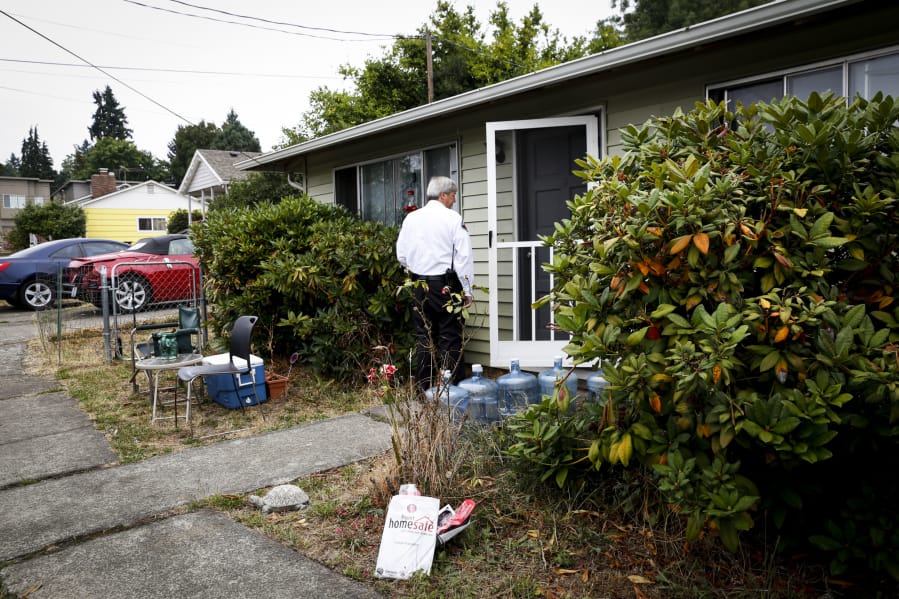Paula Person, a Vancouver Fire Corps volunteer, was going door to door distributing fire prevention education materials when she came upon a troubling sight. The exterior of a home she was visiting was littered with cigarette butts.
She knocked on the door and spoke with the residents.
“They were pretty quiet. I think they were a little embarrassed,” Person said. “You just know this is an accident waiting to happen. We don’t always know what we prevent.”
This summer, the corps is carrying out the Vancouver Fire Department’s Project Home Safe, an education-based initiative that is part of the department’s larger campaign to eliminate fire deaths and injuries. The group meets each Saturday morning before splitting up to canvass around 200 addresses each week.
The project started June 29. As of Aug. 17, the group has contacted 1,105 residences. The goal is to canvass 1,608 homes in an area bounded by East Fourth Plain and Mill Plain boulevards and Grand Boulevard and Stapleton Road.
“It is a major commitment to do this, but it’s so important,” volunteer Barney Levie said. “At the end of a day of Project Home Safe, you know you’ve helped somebody.”
The corps first rolled out the initiative in the same area in 2017. The region was picked based on data revealing parts of the city that have been most prone to blazes.
Eventually, the goal is to canvass the entire city, Deputy Fire Marshal LeMont Lucas said.
Educational literature is presented in four languages: English, Spanish, Russian and Vietnamese. The volunteers also present a one-minute video on a tablet. Those who answer the door are also given an ash bucket filled with oven mitts and other kitchen accessories adorned with fire-safe messages.
When someone answers the door, volunteers tend to quickly relay one message: We’re not selling anything.
“We’re interrupting their lives. You’ve got to establish your credibility,” Levie said. “Most people are happy to see us. Some not as much when you wake them up; but for the most part, they’re fine.”
Once a rapport is established, volunteers attempt to convey their messages in a manner that best suits the audience. Levie once spoke to a man in his 90s, for instance, who was blind and couldn’t see the leaflets or watch the video. Instead, Levie talked to him about the information and answered the his questions.
“Sometimes, you just have to step back and listen,” Levie said.
Other times, the interactions compel people to ask questions they previously hadn’t considered. Do you have smoke detectors? How many? Where will you go if there’s a fire? Assuming it’s outside, where is the safest place to go?
“It just triggers a lot of thoughts with people,” Person said.
On Aug. 10, seven volunteers toured the target area along with three deputy fire marshals.
The deputies’ presence can help establish credibility. For instance, Marney Mathison was initially reluctant to watch the educational video when Deputy Fire Marshal Skip Navarrette approached her house.
Mathison did, however, have some questions about her smoke detector. Navarrette went inside to check it out before returning to the front porch.
“Sure you don’t have a minute?” he asked her.
Mathison acquiesced.
While different strategies are necessary depending on the situation, volunteers recognize the value they bring to the initiative.
“It takes that volunteer to come up and say, ‘Hey, you shouldn’t do that,’ ” Person said.




